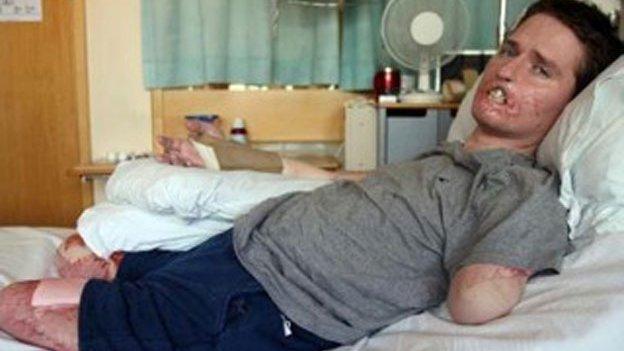The quadruple amputee who needs the correct prosthetic
- Published
- comments
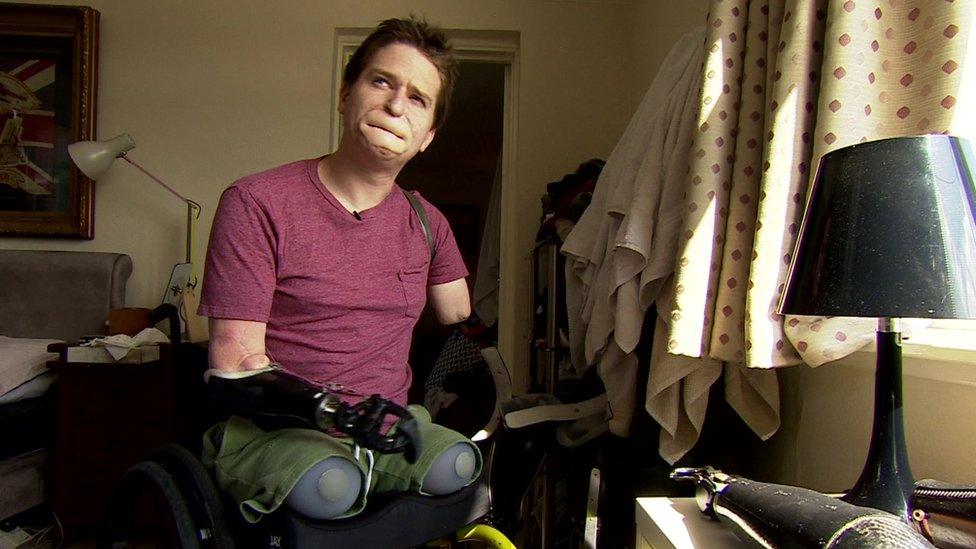
Alex Lewis contracted a streptococcal infection in 2013, which triggered a life-threatening condition
When Alex Lewis spoke to BBC Ouch in January about becoming a quadruple amputee, what shone through was his remarkable positivity. This remains - but his rehabilitation is being hampered by the need for prosthetics unavailable to him.
"I don't want to be on benefits or care allowance. It feels like they are shackles around you," Mr Lewis, from Stockbridge, Hampshire, tells the Victoria Derbyshire programme.
In November 2013, what he thought was "man flu" turned out to be a streptococcal infection (type A) that had penetrated deep into his tissues and organs.
It had triggered blood poisoning, or sepsis, a life-threatening condition that causes multiple organ failure, and left him in need of facial reconstruction and the amputation of four infected limbs.
Since then, he has remained his positive self - but the next step in his search for independence is proving difficult to overcome.
While his ambitions remain grounded in the every day - the ability to walk to the shops, to drive and to earn money for his family - the prosthetics that could potentially make this a reality are not available to him on the NHS in England.
The micro-processor knee joints - which would allow him to walk with stability - are only provided to some injured veterans, as well as NHS patients in Scotland who meet certain criteria.
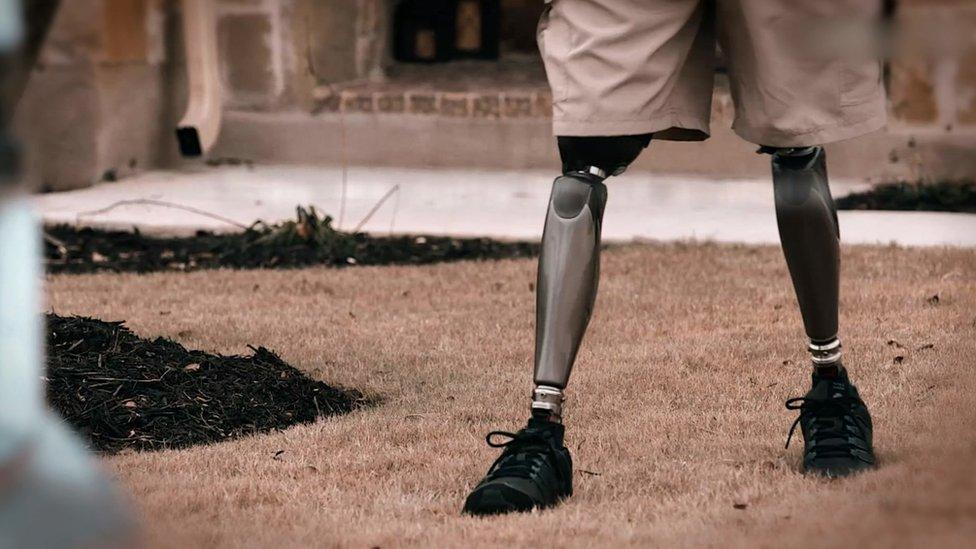
Mr Lewis hopes micro-processor knee joints would enable him to live independently
"What we'd like to do is speak to the NHS in England and alter the system," he says. "If they were willing to help financially, then more people would be getting the right prosthetics, but it's trying to make them listen."
Mr Lewis wants the NHS to consider the need for such prosthetics on a case-by-case basis, to take into account unique circumstances such as his.
While NHS England could not comment on his specific case, it stated that earlier this year the independent Clinical Priorities Advisory Group had "concluded there was insufficient evidence to support routine commissioning [of micro-processor knee joints]", though there was "the intention to consider it again over the coming months".
Mr Lewis believes, however, that the current alternatives limit his capabilities.
"Rocker pylons [prosthetics on a short pole, with a large rocking foot] are a great training aid on a flat surface - but when it comes to walking around in the real world, they are not that good," he says.
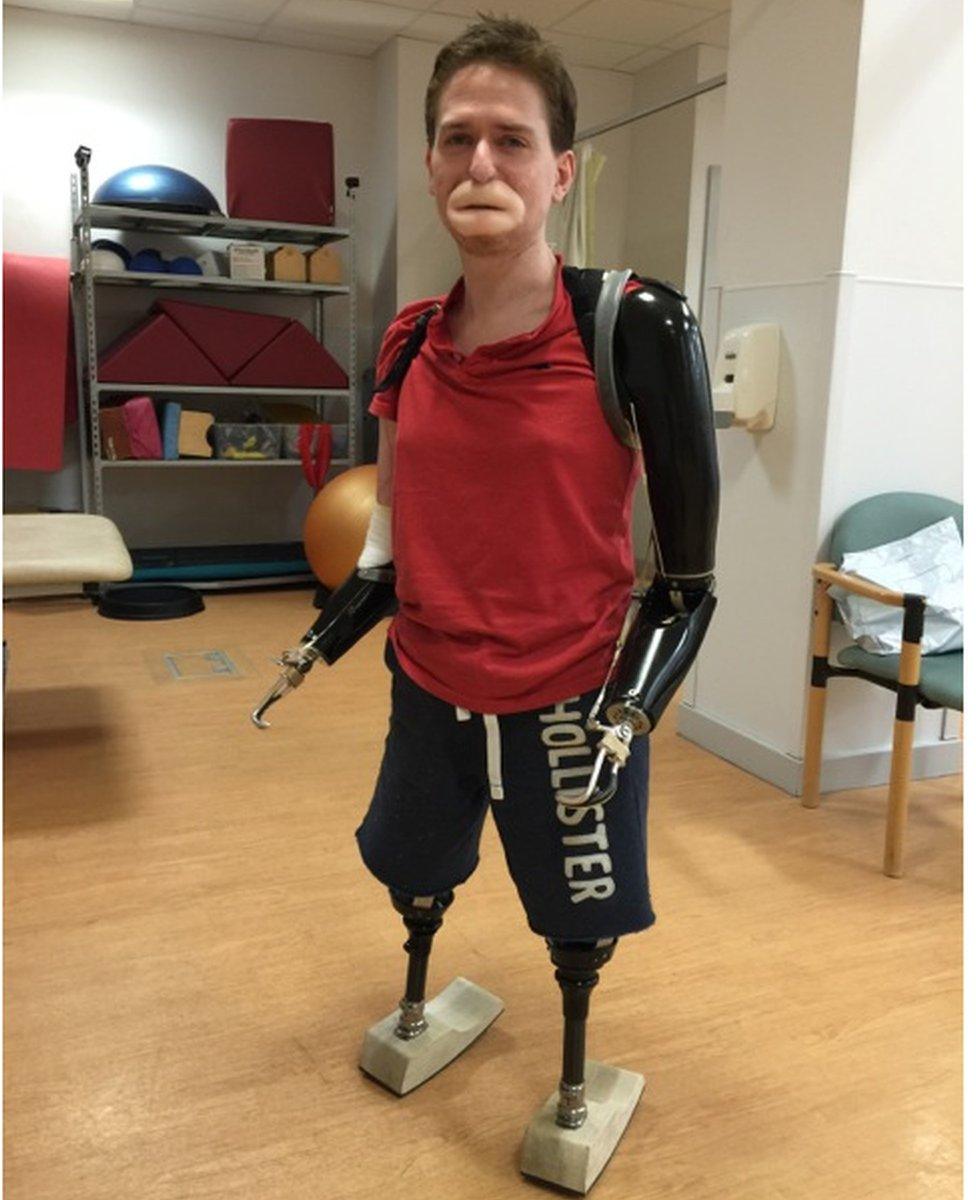
Alex Lewis believes "rocker pylons" are impractical
He says they have developed little since the 1960s, and make him feel vulnerable on the rough terrain of the farm where he lives.
The second option is stubbies, or "elephant feet" as Mr Lewis likes to describe them - basic prosthetics that do not require a knee joint and can be attached directly to a prosthetic foot.
But they are not free from problems. "With no knee joint, your hips have to do all the work - potentially causing long-term wear and tear," Mr Lewis says.
"If I screw my hips up, I can't walk."
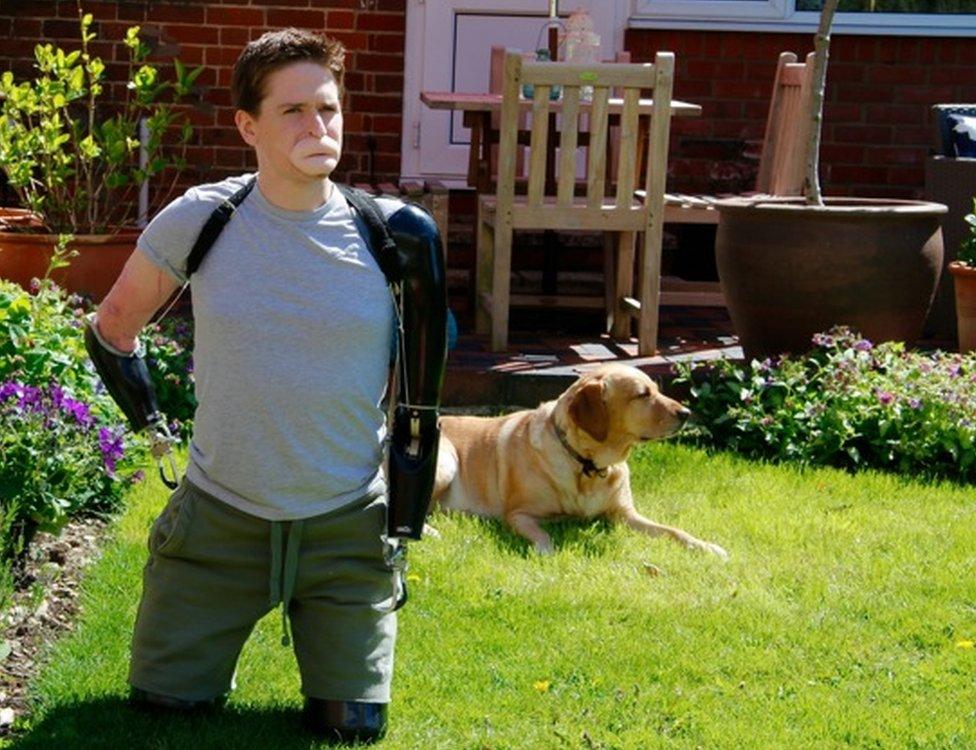
Mr Lewis believes stubbies could cause him long-term hip problems
As a result, they compare unfavourably to the micro-processor knee joints, which his prosthetist, George Tagliaferro, says offer double leg amputees safety and control.
"The knee joints have sensors, allowing them to adapt to the environment around them. They know whether the user is going uphill or downhill, or ascending or descending stairs, and can react to make walking more stable," he adds.
"This all happens in a split second, and reduces the risk of the user falling." This is especially important for Mr Lewis, where any falls could lead to the damage of arm joints or his reconstructed elbow.

Find out more
Watch Victoria Derbyshire on weekdays from 09:15-11:00 BST on BBC Two and the BBC News channel.

These benefits have led Mr Lewis to take it upon himself to improve his situation - characteristic of his attitude to life since the infection developed.
"Before I fell ill I was chronically laid back," he says, "and since falling ill I've become much more driven."
Since establishing a trust fund to help him raise the £165,000 needed for the knee joints, he says, he has received constant good will and support - including a donation from Coldplay front man Chris Martin.
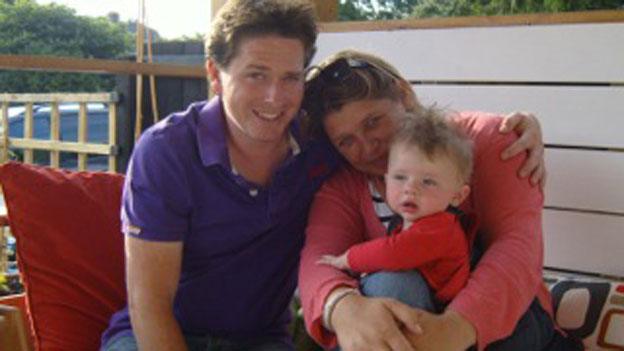
Mr Lewis with his family before his illness
His current total stands at £120,000. But even if he reaches his goal, this could be far from the end of the fundraising process.
The prosthetics only come with a five-year guarantee, meaning parts - or even whole joints - may need replacing thereafter.
"The costs are not viable in the long term," he says. "It is not as easy as saying, 'Here is the money, go and get yourself a new set of legs.'"
For Mr Lewis, though, setbacks are something to overcome.
In October, he will begin ground-breaking facial reconstruction surgery to reform his lips, with operations taking place every six months after for two years.
He is also learning to use a hand-cycle after being given one as a donation, even having a special sports arm developed to enable him to use it.
Once his training is complete, his goal is simple - to take it to the local pub.
Follow @BBCOuch, external on Twitter and on Facebook, external, and listen to our monthly talk show
- Published22 January 2015
